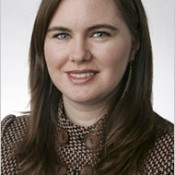Do the math
The coming year will feature a surge in evidence-based journalism.
A high point of this month’s NewsFoo gathering of journalists and technologists was a call to quality by a prominent non-journalist. Asked what advice he had for the craft, Harper Reed, chief technology officer for the Obama campaign, said “Fucking do math.”
 In 2013, journalists will start seriously doing math. This isn’t just about the embarrassments of the 2012 election campaign, when so many top media pundits — not just politicians — went with their gut instead of the numbers and looked like idiots on Election Day. Nate Silver’s solid statistical analyses demonstrated more than the value of numbers, however. This was about evidence.
In 2013, journalists will start seriously doing math. This isn’t just about the embarrassments of the 2012 election campaign, when so many top media pundits — not just politicians — went with their gut instead of the numbers and looked like idiots on Election Day. Nate Silver’s solid statistical analyses demonstrated more than the value of numbers, however. This was about evidence.
Caring about evidence will mean several things. In doing the math, journalists will tell their audiences what the data show on a given topic, and explain nuances such as relative risk. For example, when reporting a medical finding allegedly showing a correlation between some new pharmaceutical and higher incidences of rare cancers, they’ll note that the odds of any single person getting the disease were vanishingly small in the first place — and they’ll dig hard to find out whether a drug company that stands to gain from this finding also paid for the study.
Local TV news programs will stop leading every show with violent crime and explain to their audiences that, actually, the crime rate has been plummeting in most places for several decades. And articles about climate change (assuming it returns to the public agenda) will note the overwhelming scientific consensus that (a) the planet is getting warmer, (b) this could have catastrophic consequences, and (c) humans are causing a significant amount of the change. That will lead to another welcome change: Climate change reports won’t feature skeptics nearly as often.
Indeed, journalists in all arenas — politics in particular — will stop quoting “both sides” of issues when one side is lying, or at least they’ll feel obliged to tell their audiences that one side is lying. Their sources will be upset in many cases, but there will be an added benefit here as well: Once it becomes clear that news media plan to hold the powerful accountable, journalists will forfeit their coziness with the powers-that-be in politics, business, and other fields.
The rise of evidence-based journalism will be a breath of fresh air, especially in politics, and will be good for media organizations’ bottom lines, too. As the volume of information rises, the value of any individual piece of information becomes more and more questionable, and the journalists who do the math will have more credibility. When enough news consumers are hopelessly confused — or have been burned by low-quality information — they’ll retreat to quality.
(As always, this reflects my hope more than my expectation. Call me an optimist.)



































